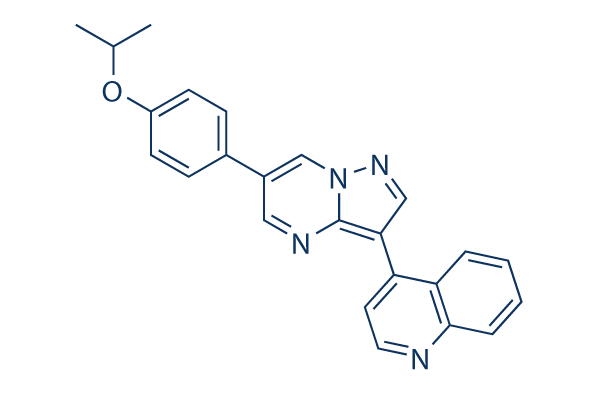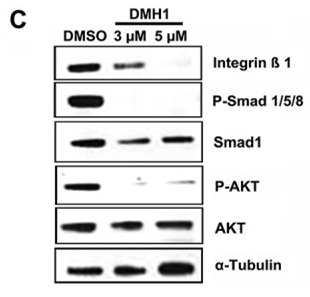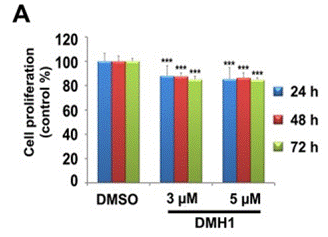
- Bioactive Compounds
- By Signaling Pathways
- PI3K/Akt/mTOR
- Epigenetics
- Methylation
- Immunology & Inflammation
- Protein Tyrosine Kinase
- Angiogenesis
- Apoptosis
- Autophagy
- ER stress & UPR
- JAK/STAT
- MAPK
- Cytoskeletal Signaling
- Cell Cycle
- TGF-beta/Smad
- Compound Libraries
- Popular Compound Libraries
- Customize Library
- Clinical and FDA-approved Related
- Bioactive Compound Libraries
- Inhibitor Related
- Natural Product Related
- Metabolism Related
- Cell Death Related
- By Signaling Pathway
- By Disease
- Anti-infection and Antiviral Related
- Neuronal and Immunology Related
- Fragment and Covalent Related
- FDA-approved Drug Library
- FDA-approved & Passed Phase I Drug Library
- Preclinical/Clinical Compound Library
- Bioactive Compound Library-I
- Bioactive Compound Library-Ⅱ
- Kinase Inhibitor Library
- Express-Pick Library
- Natural Product Library
- Human Endogenous Metabolite Compound Library
- Alkaloid Compound LibraryNew
- Angiogenesis Related compound Library
- Anti-Aging Compound Library
- Anti-alzheimer Disease Compound Library
- Antibiotics compound Library
- Anti-cancer Compound Library
- Anti-cancer Compound Library-Ⅱ
- Anti-cancer Metabolism Compound Library
- Anti-Cardiovascular Disease Compound Library
- Anti-diabetic Compound Library
- Anti-infection Compound Library
- Antioxidant Compound Library
- Anti-parasitic Compound Library
- Antiviral Compound Library
- Apoptosis Compound Library
- Autophagy Compound Library
- Calcium Channel Blocker LibraryNew
- Cambridge Cancer Compound Library
- Carbohydrate Metabolism Compound LibraryNew
- Cell Cycle compound library
- CNS-Penetrant Compound Library
- Covalent Inhibitor Library
- Cytokine Inhibitor LibraryNew
- Cytoskeletal Signaling Pathway Compound Library
- DNA Damage/DNA Repair compound Library
- Drug-like Compound Library
- Endoplasmic Reticulum Stress Compound Library
- Epigenetics Compound Library
- Exosome Secretion Related Compound LibraryNew
- FDA-approved Anticancer Drug LibraryNew
- Ferroptosis Compound Library
- Flavonoid Compound Library
- Fragment Library
- Glutamine Metabolism Compound Library
- Glycolysis Compound Library
- GPCR Compound Library
- Gut Microbial Metabolite Library
- HIF-1 Signaling Pathway Compound Library
- Highly Selective Inhibitor Library
- Histone modification compound library
- HTS Library for Drug Discovery
- Human Hormone Related Compound LibraryNew
- Human Transcription Factor Compound LibraryNew
- Immunology/Inflammation Compound Library
- Inhibitor Library
- Ion Channel Ligand Library
- JAK/STAT compound library
- Lipid Metabolism Compound LibraryNew
- Macrocyclic Compound Library
- MAPK Inhibitor Library
- Medicine Food Homology Compound Library
- Metabolism Compound Library
- Methylation Compound Library
- Mouse Metabolite Compound LibraryNew
- Natural Organic Compound Library
- Neuronal Signaling Compound Library
- NF-κB Signaling Compound Library
- Nucleoside Analogue Library
- Obesity Compound Library
- Oxidative Stress Compound LibraryNew
- Plant Extract Library
- Phenotypic Screening Library
- PI3K/Akt Inhibitor Library
- Protease Inhibitor Library
- Protein-protein Interaction Inhibitor Library
- Pyroptosis Compound Library
- Small Molecule Immuno-Oncology Compound Library
- Mitochondria-Targeted Compound LibraryNew
- Stem Cell Differentiation Compound LibraryNew
- Stem Cell Signaling Compound Library
- Natural Phenol Compound LibraryNew
- Natural Terpenoid Compound LibraryNew
- TGF-beta/Smad compound library
- Traditional Chinese Medicine Library
- Tyrosine Kinase Inhibitor Library
- Ubiquitination Compound Library
-
Cherry Picking
You can personalize your library with chemicals from within Selleck's inventory. Build the right library for your research endeavors by choosing from compounds in all of our available libraries.
Please contact us at [email protected] to customize your library.
You could select:
- Antibodies
- Bioreagents
- qPCR
- 2x SYBR Green qPCR Master Mix
- 2x SYBR Green qPCR Master Mix(Low ROX)
- 2x SYBR Green qPCR Master Mix(High ROX)
- Protein Assay
- Protein A/G Magnetic Beads for IP
- Anti-DYKDDDDK Tag magnetic beads
- Anti-DYKDDDDK Tag Affinity Gel
- Anti-Myc magnetic beads
- Anti-HA magnetic beads
- Poly DYKDDDDK Tag Peptide lyophilized powder
- Protease Inhibitor Cocktail
- Protease Inhibitor Cocktail (EDTA-Free, 100X in DMSO)
- Phosphatase Inhibitor Cocktail (2 Tubes, 100X)
- Cell Biology
- Cell Counting Kit-8 (CCK-8)
- Animal Experiment
- Mouse Direct PCR Kit (For Genotyping)
- New Products
- Contact Us
DMH1
DMH1 is a selective BMP receptor inhibitor with IC50 of 107.9 nM for ALK2, exhibiting no inhibition on AMPK, ALK5, KDR (VEGFR-2) or PDGFR. DMH1 inhibits autophagy.

DMH1 Chemical Structure
CAS: 1206711-16-1
Selleck's DMH1 has been cited by 44 publications
Purity & Quality Control
Batch:
Purity:
99.92%
99.92
Other TGF-beta/Smad Products
Related compound libraries
Choose Selective TGF-beta/Smad Inhibitors
Cell Data
| Cell Lines | Assay Type | Concentration | Incubation Time | Formulation | Activity Description | PMID |
|---|---|---|---|---|---|---|
| HUVECs | Function assay | 4.5 μM | 2 h | simultaneous stimulation of BMPER and BMP4 together with DMH1 prevented augmentation of NICD and HES1 on the protein level | 29473997 | |
| HeLa | Function assay | 5 μmol/L and 10 μmol/L | 24 h | DMH1 inhibited CDDP-induced autophagy in HeLa cells. | 26579463 | |
| MCF-7 | Function assay | 5 μmol/L and 10 μmol/L | 24 h | completely abolished the tamoxifen-induced increase of autophagy responses in MCF-7 cells | 26579463 | |
| OVCAR3 | Function assay | 20 μM | 24 h | reduce the canonical phosphorylation of Smads 1,5 and 9 | 26235139 | |
| OVCAR8 | Function assay | 20 μM | 24 h | reduce the canonical phosphorylation of Smads 1,5 and 9 | 26235139 | |
| SKOV3 | Function assay | 20 μM | 24 h | reduce the canonical phosphorylation of Smads 1,5 and 9 | 26235139 | |
| A549 | Function assay | 3 and 5 µM | 24 h | DMH1 treatment effectively blocked Smad 1/5/8 phosphorylation in a dose dependent manner | 24603907 | |
| Click to View More Cell Line Experimental Data | ||||||
Biological Activity
| Description | DMH1 is a selective BMP receptor inhibitor with IC50 of 107.9 nM for ALK2, exhibiting no inhibition on AMPK, ALK5, KDR (VEGFR-2) or PDGFR. DMH1 inhibits autophagy. | ||
|---|---|---|---|
| Targets |
|
| In vitro | ||||
| In vitro | DMH1 inhibits BMP signaling with IC50 of 100 nM, and selectively inhibits the BMP-induced Smad1/5/8 activation. [1] DMH1 increases cardiomyocyte progenitors and promotes cardiac differentiation in mouse embryonic stem cells. [3] In addition, DMH1 as a BMP inhibitor, significantly reduces NSCLC cell growth, migration and invasion. [4] | |||
|---|---|---|---|---|
| Kinase Assay | Kinase assay | |||
| All kinase assays are conducted by Reaction Biology Corp. In brief, compounds are tested at 10 concentrations by 3-fold serial dilutions starting at 30 μM, using nonspecific kinase inhibitor staurosporine as control. In vitro kinase reactions are carried out in the presence of 10 μM (33P)γATP. Five kinases tested are the human BMP type-I receptor activin receptor-like kinase 2 (ALK-2/ACVR1), the human TGFβ type-I receptor activin receptor-like kinase 5 (Alk5/TGFβR1), the human VEGF type-II receptor (KDR/Flk-1/VEGFR2), the human AMP-activated protein kinase (AMPK/A1/B1/G1) and the human platelet-derived growth factor receptor-β (PDGFRβ). | ||||
| Cell Research | Cell lines | A549 cells | ||
| Concentrations | ~5 μM | |||
| Incubation Time | 48-96 hours | |||
| Method | About 10,000 A549 cells per well are seeded in 96-well plates and incubated for overnight. The culture medium is then changed to fresh medium containing DMSO or DMH1 at various concentrations. The cells are then incubated for 48 hours and 96 hours before treatment termination by replacing the medium with 100 μL of 10% trichloroacetic acid in 1× PBS, followed by incubation at 4°C for at least 1 hour. Subsequently, the plates are washed with water and air dried. The plates are stained with 50 μL 0.4% sulphorhodamine assay in 1% acetic acid for 30 minutes at room temperature. Unbound dye is washed off with 1% acetic acid. After air drying and solubilization of the protein-bound dye in 10 mM Tris solution, absorbance is read in a microplate reader at 565 nm. | |||
| Experimental Result Images | Methods | Biomarkers | Images | PMID |
| Western blot | Integrin β1 / p-Smad / Smad1 / p-AKT / AKT |

|
26337467 | |
| Growth inhibition assay | Cell proliferation |

|
26337467 | |
| In Vivo | ||
| In vivo | DMH1 dorsalizes the embryonic axis without disrupting the angiogenic process in Zebrafish embryos. [1] In proepicardial explants, DMH1 results in the greatest inhibition of epithelial sheet migration. [2] DMH1 (5 mg/kg i.p.)attenuates xenograft lung tumor growth in mice bearing A549 xenograft. [4] | |
|---|---|---|
| Animal Research | Animal Models | Mice bearing A549 xenograft. |
| Dosages | ~5 mg/kg | |
| Administration | i.p. | |
Chemical lnformation & Solubility
| Molecular Weight | 380.44 | Formula | C24 H20 N4 O |
| CAS No. | 1206711-16-1 | SDF | Download DMH1 SDF |
| Smiles | CC(C)OC1=CC=C(C=C1)C2=CN3C(=C(C=N3)C4=CC=NC5=CC=CC=C45)N=C2 | ||
| Storage (From the date of receipt) | |||
|
In vitro |
DMSO : 25 mg/mL ( (65.71 mM); Moisture-absorbing DMSO reduces solubility. Please use fresh DMSO.) Water : Insoluble Ethanol : Insoluble |
Molecular Weight Calculator |
|
In vivo Add solvents to the product individually and in order. |
In vivo Formulation Calculator |
||||
Preparing Stock Solutions
Molarity Calculator
In vivo Formulation Calculator (Clear solution)
Step 1: Enter information below (Recommended: An additional animal making an allowance for loss during the experiment)
mg/kg
g
μL
Step 2: Enter the in vivo formulation (This is only the calculator, not formulation. Please contact us first if there is no in vivo formulation at the solubility Section.)
% DMSO
%
% Tween 80
% ddH2O
%DMSO
%
Calculation results:
Working concentration: mg/ml;
Method for preparing DMSO master liquid: mg drug pre-dissolved in μL DMSO ( Master liquid concentration mg/mL, Please contact us first if the concentration exceeds the DMSO solubility of the batch of drug. )
Method for preparing in vivo formulation: Take μL DMSO master liquid, next addμL PEG300, mix and clarify, next addμL Tween 80, mix and clarify, next add μL ddH2O, mix and clarify.
Method for preparing in vivo formulation: Take μL DMSO master liquid, next add μL Corn oil, mix and clarify.
Note: 1. Please make sure the liquid is clear before adding the next solvent.
2. Be sure to add the solvent(s) in order. You must ensure that the solution obtained, in the previous addition, is a clear solution before proceeding to add the next solvent. Physical methods such
as vortex, ultrasound or hot water bath can be used to aid dissolving.
Tech Support
Answers to questions you may have can be found in the inhibitor handling instructions. Topics include how to prepare stock solutions, how to store inhibitors, and issues that need special attention for cell-based assays and animal experiments.
Tel: +1-832-582-8158 Ext:3
If you have any other enquiries, please leave a message.
* Indicates a Required Field
Tags: buy DMH1 | DMH1 supplier | purchase DMH1 | DMH1 cost | DMH1 manufacturer | order DMH1 | DMH1 distributor







































